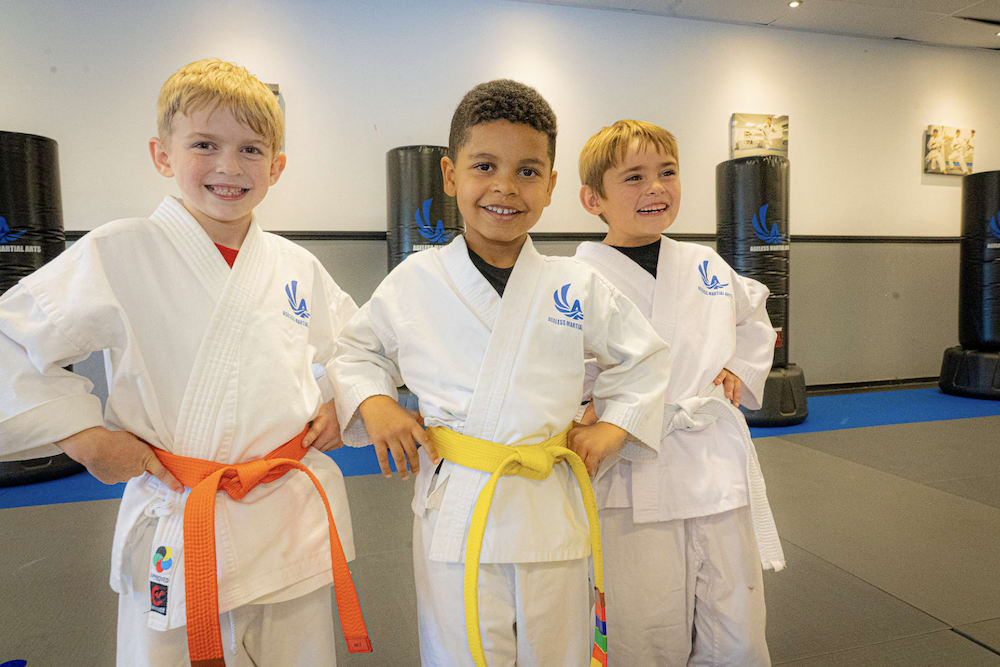As a martial arts school, our mission goes far beyond punches and kicks. Our local instructors use life skills, structured discipline, and results-driven methods to help your child grow into the best version of themselves — not just in class, but at home, in school, and within the community.
Whether your child is just starting out in our toddler martial arts program, building confidence in our karate classes for kids, or growing stronger in our teen martial arts classes, each step is part of a powerful journey of self-development. From white belt to black belt, students are encouraged to embrace focus, perseverance, and respect — learning not only how to defend themselves, but how to lead with confidence and compassion.
As students progress through the ranks, they’re taught the value of hard work, goal-setting, and consistency. These lessons extend far beyond the dojo, helping kids and teens thrive academically, socially, and emotionally.
For parents and adults looking to challenge themselves and grow in a supportive environment, we also offer adult martial arts programs that build strength, sharpen focus, and relieve stress — all while developing real-world self-defense skills.







